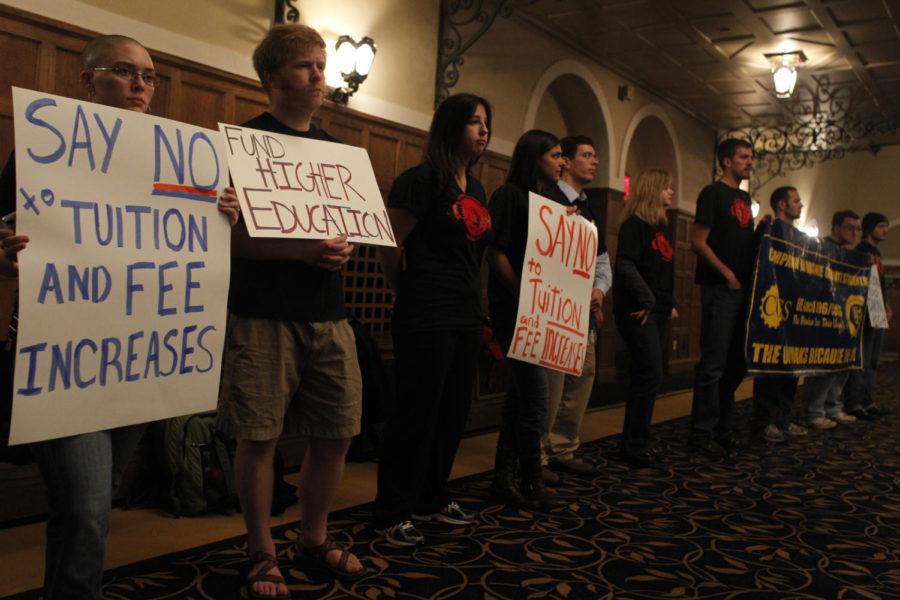Tuition set-aside to be phased out
University of Iowa graduate students protest tuition and fee increases at the state Board of Regents meeting at the IMU on Thursday.
November 1, 2012
Tuition set-aside, a program into which all students at Iowa State have been paying 19.1 percent of their tuition to fund need- and merit-based scholarships, is facing the possibility of being phased out within the next five years.
The Iowa Board of Regents moved further on the proposal after their meeting on Oct. 25.
The program was created due to a lack of a specific program from the state to provide those scholarships at Iowa State University, University of Iowa and University of Northern Iowa; Iowa private colleges have state-funded aid.
The proposed phase-out is contingent upon Regent schools receiving a $39.5 million increase in funding from the state for need-based scholarships. The merit-based scholarships at Iowa State would come from private donations, for which a goal of $150 million dollars over five years has been set. Both of these options would eventually result in lowered tuition rates for students.
The proposal asks that the section of the Board of Regents policy manual that requires the Regent universities to contribute at least 15 percent of “gross tuition proceeds” to set-aside, be eliminated.
“I think there’s mixed feelings about the [tuition set-aside] program in general. It’s pretty controversial, the program itself,” said Andrew Gall, chief of staff for the Government of the Student Body. “There’s all this discussion over tuition going up, and high tuition prices, and student debt, and then, you take a look at this program, and you’re saying, ‘Wow, 19.1 percent? Almost a quarter of our tuition is going to other students!’ Students get passionate about that.”
The students receiving aid from the tuition set-aside funds are not exempt from having to pay into the program.
The biggest complaint against the program, however, is that many students argue that they do not want to fund others’ education.
The five-year plan proposed to phase out the tuition set-aside program will be voted on in the Board of Regents’ Dec. meeting.

















